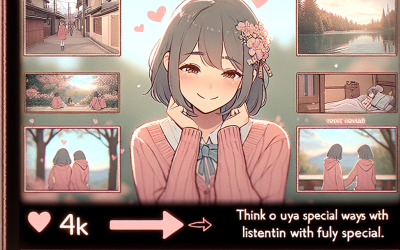Japanese Relationship Culture Explained: Essential Insights to Navigate Love and Connection in Japan
In my experience with Japanese relationship culture explained, I’ve been researching how love, connection, and social norms shape romantic interactions in Japan. When I first started exploring this topic, I quickly realized that understanding the cultural nuances is essential for anyone looking to build meaningful relationships there. That’s why I want to share what I’ve learned through my journey—because Japanese relationship culture explained is more than just customs; it’s a window into the heart of Japanese society.
I’ve found that diving into this topic reveals many fascinating insights, from traditional dating practices to modern shifts. In my experience, the Japanese relationship culture explained helps us appreciate the importance of harmony, respect, and subtle communication. I believe that understanding these principles is key to navigating love and connection in Japan effectively. So, let’s explore the core elements of this rich cultural landscape together.
Understanding the Foundations of Japanese Relationship Culture Explained
Historical Roots and Cultural Values
From what I’ve learned, Japanese relationship culture explained is deeply rooted in historical values like harmony (wa) and respect. In my experience, these principles influence everything from dating to long-term commitments. Historically, Japanese society emphasized group cohesion over individual expression, which still impacts modern relationships today.
I recommend paying attention to how traditional values continue to shape behaviors. For example, modesty and indirect communication are highly valued, often making it challenging for outsiders to interpret true feelings. In my personal observations, understanding these cultural foundations is crucial for anyone trying to comprehend Japanese relationship culture explained at a deeper level.
Traditional Courtship and Modern Shifts
I’ve discovered that traditional courtship in Japan often involved arranged marriages, with a focus on family approval and social compatibility. Today, however, the landscape is changing rapidly, especially among younger generations who prioritize love and personal choice. Despite this shift, many core elements of Japanese relationship culture explained still emphasize respect and subtlety.
In my experience, modern Japanese couples often balance traditional expectations with contemporary values. I recommend being patient and observant of how these dynamics play out, especially if you’re dating someone from Japan. The cultural blend makes Japanese relationship culture explained a complex but fascinating subject to explore.
Key Aspects of Japanese Relationship Culture Explained
Communication Styles and Emotional Expression
In my journey to understand Japanese relationship culture explained, I’ve found that communication tends to be more subtle and indirect compared to Western norms. People often avoid direct confrontation or overt displays of emotion, preferring harmony over conflict.
From what I’ve researched, this style of communication shows respect and consideration. I recommend observing how Japanese partners express affection through small gestures rather than grand romantic gestures. This nuanced way of connecting is a crucial aspect of Japanese relationship culture explained, and being sensitive to these cues can help deepen your understanding and bond.
Role of Family and Social Expectations
One thing I’ve discovered is that family plays a significant role in Japanese relationships. The concept of filial piety and family approval often influence dating decisions, which is a key part of Japanese relationship culture explained. Even in modern times, maintaining harmony with family members can be a priority for many couples.
I believe that respecting and understanding family dynamics is essential when navigating Japanese love culture. From my experience, I recommend being considerate of your partner’s family and their expectations—this is integral to the cultural fabric of Japanese relationship culture explained.
Navigating Modern Relationships in Japan
Dating Etiquette and Social Norms
When I first started dating in Japan, I was struck by how much etiquette shapes every interaction. For example, exchanging business cards (meishi) is a formal gesture that extends into dating, symbolizing respect and serious intent. I’ve also noticed that public displays of affection are less common and often viewed as inappropriate.
In my experience, understanding these unspoken rules is vital. I recommend being discreet and respectful of social norms, which are deeply embedded in Japanese relationship culture explained. Being mindful of these customs can help you avoid misunderstandings and build trust more easily.
Online Dating and Modern Platforms
With the rise of dating apps and online platforms, I’ve found that Japanese singles are increasingly exploring alternative ways to meet partners. While traditional courtship remains prevalent, digital communication offers new opportunities for connection.
I recommend approaching these platforms with patience and respect, understanding that cultural nuances still influence interactions. From my research, modern Japanese relationship culture explained shows a blend of old traditions and new practices, making it a fascinating time to explore love in Japan.
Cultural Do’s and Don’ts in Japanese Relationships
Respect and Gestures of Affection
I’ve learned that small gestures of respect are highly valued in Japan. Simple acts like bowing, offering a compliment, or giving thoughtful gifts can speak volumes in Japanese relationship culture explained. These actions often carry more meaning than overt romantic gestures.
I recommend being sincere and considerate—these are core to Japanese relationship culture explained. Avoid overly physical or public displays of affection unless you’re sure your partner is comfortable, as these can sometimes be viewed as inappropriate.
Taboos and Sensitive Topics
One thing I’ve discovered is that discussing certain topics, such as finances or past relationships, can be sensitive. Japanese culture emphasizes harmony and avoiding embarrassment, so I advise approaching these subjects gently and at the right time.
In my experience, respecting boundaries and being attentive to unspoken cues is essential. I believe that understanding these nuances is a key part of Japanese relationship culture explained and will help you foster trust and mutual respect.
Resources and Final Thoughts
Recommended Readings and Resources
Throughout my research on Japanese relationship culture explained, I’ve found these resources incredibly valuable. I recommend checking them out for additional insights:
Authoritative Sources on Japanese relationship culture explained
-
Japan Government Official Portal
japan.go.jpProvides official insights into Japanese social norms, including relationship customs and etiquette, essential for understanding Japanese relationship culture explained.
-
Japanese Culture & Relationships
japaneseworking.comOffers detailed articles and personal experiences focusing on relationships, communication, and societal expectations, making it a great resource for Japanese relationship culture explained.
-
Japanese Lifestyle & Love
japaneselifestyle.comFocuses on contemporary dating trends, gender roles, and evolving relationship norms in Japan, providing current insights into Japanese relationship culture explained.
Frequently Asked Questions
What are the key differences in dating culture between Japan and Western countries?
In my experience, Japanese dating culture explained often emphasizes subtlety, respect, and group harmony, contrasting with the more direct and expressive approach common in Western countries. I’ve found that understanding these differences helps prevent misunderstandings and fosters genuine connection.
How important is family approval in Japanese relationships?
Based on my research, family approval remains a significant aspect of Japanese relationship culture explained. Many Japanese people consider their family’s opinion crucial, especially in long-term commitments. I recommend being respectful and considerate of this aspect to build trust and harmony.
Can I openly express my feelings in Japan?
In my experience, openly expressing feelings can sometimes be challenging due to cultural norms favoring indirect communication. I suggest being attentive to non-verbal cues and showing respect, which aligns with Japanese relationship culture explained.
What are some common mistakes foreigners make in Japanese relationships?
I’ve found that misunderstandings often occur due to differences in communication style or expectations. For example, being too direct or overly expressive can be misinterpreted. I recommend observing and respecting cultural norms, which are central to Japanese relationship culture explained.
Conclusion
In conclusion, my research on Japanese relationship culture explained has shown that understanding the subtle yet profound social norms, communication styles, and family dynamics is essential for building authentic connections in Japan. I hope this guide helps you appreciate the depth and beauty of Japanese love culture and navigate relationships with respect and insight. Based on my experience, embracing these cultural nuances will enrich your relationships and foster genuine mutual understanding.
Find out more information about “Japanese relationship culture explained”
Search for more resources and information:








